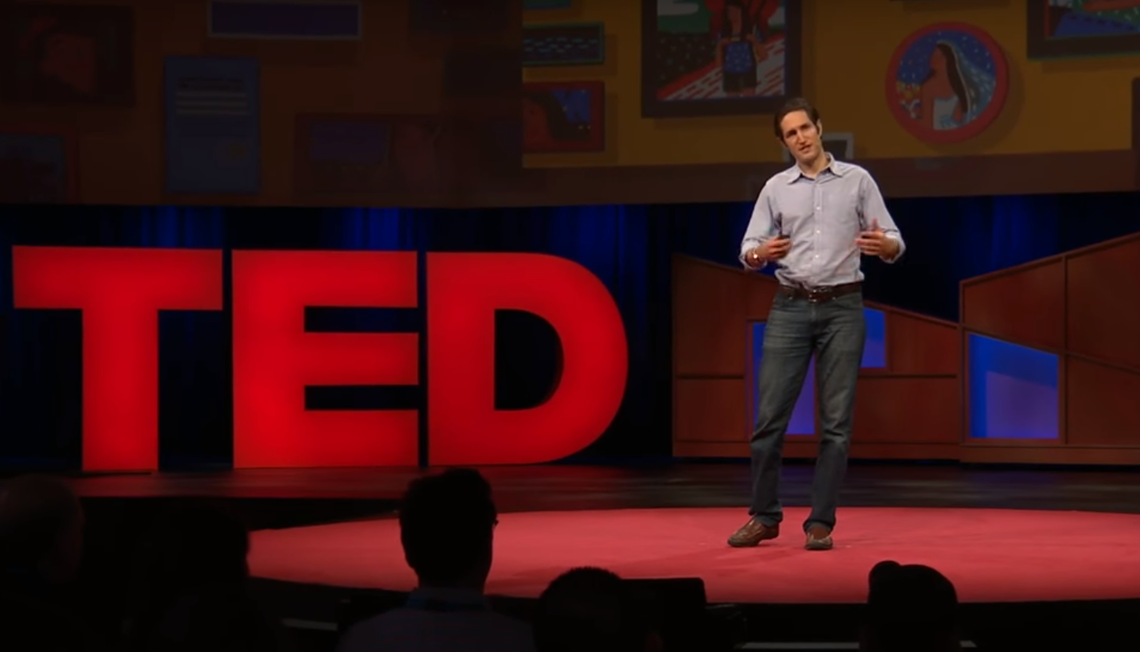Dating Apps Make You Less Happy
Adam Alter uses the Ted Talk platform to warm audience members about the potentially negative effects of excessive screen time. Alter, assistant professor of Psychology and Business, explains the reason he is concerned for American's mental health as technology consumes our society, as well as encouraging people to establish times of the day to not use our phones. Although Alter is credible for speaking about the psychology of technology, he does not dive into the harmful effects of technology, but briefly touches on which apps make people happier or sadder.
This Ted Talk is from just over a year ago because some Americans are becoming concerned about the effects of technology. Because we live in the digital age, this topic is highly relevant for anyone and everyone who uses technology. People have more access to technology than any prior generation, which brings enthusiasm for the advancements, but also concerns of harm. At first glance of the title, “Why our screen make us less happy” the title gives viewers an idea that he will be talking about why technology is making us less happy, but Alter mostly speaks about how using certain apps make us less happy or sad, and vaguely gives a solution to the problem.
Alter aims to reach a broad audience of Americans who use technology on a regular basis. This may include young adults, adults, and some elderly people. Parents are also a target audience for this talk because this upcoming generation is surrounded by technology, and parents who are looking out for their kid’s best interest. His speech is reaching the intended audience because the comment section of the YouTube video has a wide range of feedback from all ages of technology consumers. This talk may benefit viewers by learning basic knowledge about the tech industry, how certain apps affect people’s happiness, and how to manage tech devices by using stopping cues.
Alter finds statistics that suggest screen time is only enjoyable if people are using mental and physical health apps, while the dating and social media apps are making people less happy. Alter evaluates that people use apps that make them less happy because they are apps without stopping ques. It is a never-ending scroll basically. So even though people enjoy other apps, they spend more time on the ones that have ongoing content, even though it decreases their enjoyment and satisfaction.
Alter ends his speech by encouraging tech consumers to set times of the day to set aside their phones. He recommends dinner time to cut out using technology as a good first step to manage screen time because it’s a stopping cue point. He acknowledges that technology is useful, but advocates putting your phone away because, “life becomes more colorful, richer, more interesting, you have better conversations, you really connect with the people who are there with you” when you put your phone away.
Alter’s track record of technology-related physiological research makes him a credible person to present this info. He is a New York Times best-selling author, he also writes for the Washington Post, Huffington Post, Atlantic, and many other reliable sources. He earned his Ph.D. at Princeton and continues to earn respect from the academic world. The main problem I had with this article is that despite his 5+ years of research and study of technology and its effect on people, he only shares surface level information. While he indicates, which apps bring people more or less happiness, the only solution he presents is to reduce screen time at dinner. He makes it seem like the temptation is too much to bear unless it is at a mealtime, yet he ends his presentation by saying that putting away your phone will enhance happiness in life.
At the beginning of his talk, he mentions that Steve Jobs did not let his children use the iPad he invented, because he was strict about his children using technology. Alter never really ties that point into his argument, and also goes a completely different direction with his talk, and does not give any suggestions to parents on whether or not they should have limitations on their children’s screen time. While he presents the issue of screen time taking over our lives, he only makes one suggestion about handling it, but vaguely implies that we should put our phones away in moments like being at the ocean? He presents an issue overcoming the American people, but doesn’t give audience members a clear recommendation on how to tackle the problem. Despite his credentials, Alter’s knowledge on the subject could have been presented more clearly and effectively to his audience members.



Comments
Post a Comment